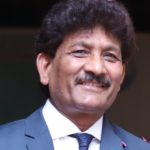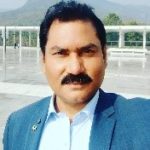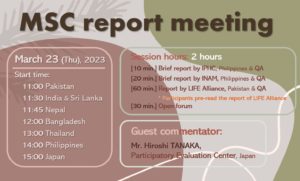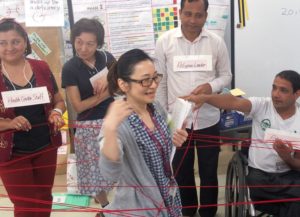Summary report on MSC in the Participatory Community Leadership Development Course (LIFE Alliance, Pakistan)
*For the Full report, <click here>.
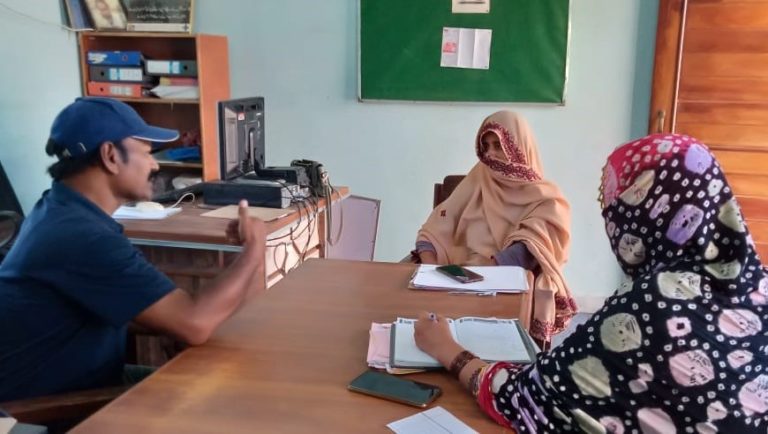
MSC and MSC workshop:
MSC is the technique for a qualitative participatory monitoring and evaluation. It provides implementers with the opportunity of organizational learning and development. In 2022, AHI conducted the workshop on MSC with its partner organizations of the past/ongoing collaboration programs. For more details, See <HERE>.
PCLDC and LIFE Alliance
Participatory Community Leadership Development Course (PCLDC) is the collaboration program between AIDS Awareness Society, to which Mr. Hector Nihal (ILDC2013) belonged, and AHI. It has been held in Lahore, Pakistan since 2014, using the participatory method and the objective to develop human resource among young community facilitators for promoting community-based development and social change in Pakistan. So far, 7 PCLDCs has been organized and 123 community workers from different various organizations in different cities/regions participated. 67 alumni still actively work in their communities.
In 2018, alumni of PCLDC/ILDC and representatives of NGOs, to which alumni belonged, were organized under the name of LIFE Alliance (Local Initiative for Empowerment) to support planning and management of PCLDC as well as applications of learning from PCLDC/ILDC each other, and also to respond to the local issues by their collaboration.
Currently, Life Alliance consists of 73 members from 4 chapters by region, Lahore (Central Punjab province), Multan (South Punjab province), Chakwal (North Punjab, Capital Islamabad, and KPK provinces), and Hyderabad (Sind province).
Background of MSC Utilization
Presently LIFE Alliance and PCLDC is facing the following challenges:
– To mobilize human and financial resources for sustainability of PCLDC and activities of LIFE Alliance at national and regional level.
– To strengthen the function of regional offices of LIFE Alliance.
In response to the above, PCLDC/LIFE Alliance implemented the impact assessment in the period from July in 2021 to March in 2022 for sharing the result with financial partners, PCLDC alumni and different NGOs in Pakistan. The purpose was to mobilize financial resources and motivate alumni to take active roles in LIFE Alliance, however, it was difficult to extract the impact clearly and in depth. Based on this experience, the team decided to utilize MSC for analyzing the impact in more detail and participated in the MSC workshop organized by AHI and facilitated by Mr. Hiroshi Tanaka, which started in March 2022.
Set-up of the MSC Evaluation Plan
During and after joining the introductive workshop online, LIFE Alliance team members have planned their MSC evaluation activity as below:
Formation of MSC Team: 8 members (2 members from each chapter) including the participants of the workshop
– MSC training was conducted by the participants of the workshop for the other members in order to share MSC concepts and steps as well as the objectives of their MSC evaluation activity.
Objectives:
– To assess the impact of PCLDC through reviewing the stories of MSC of PCLDC alumni from 4 regions of LIFE Alliance
– To develop a future strategic plan of PCLDC and LIFE Alliance for its sustainability
Domains of Change:
1, Community leadership skills of PCLDC alumni (2016 to 2020) after their participations in PCLDC.
– Community leadership skills: communication skills, decision making, community involvement, planning, presentation and so on.
2, Communities after the implementation of plan of actions by PCLDC alumni
Period of Change: 2016-2020 (5 years)
Numbers and Criteria of Story Tellers:
20 stories (5 stories per region)
Criteria:
– A participant of PCLDC 2016-2020 and a member of LIFE Alliance
– Having a will to share a story of change and being accessible
– Already shared a story of change on self and/or community in the last impact assessment
Methods: Physical and/or digital Interview
Collect Stories
The stories were collected by MSC team per region. Before the interview, MSC team members (the interviewers) explained the purpose to the story tellers and got their consent for taking photographs and sharing their stories with public.
Apart from the basic information (name, organization and year of participation in PCLDC), MSC team asked the following questions based on the domains of change which the team set up.
– What experience did you have in PCLDC?
– How did you apply your community leadership skills after PCLDC?
– As a result, what change occurred in the community/community people?
– What change did you feel about yourself during PCLDC/after PCLDC in the last 3 years?
– Why was this change significant for you?
After the interviews, each of MSC team members (interviewers) documented each story and all stories were discussed for titling by all members of the team. In order to extract the significant points from stories more clearly, MSC team members revisited the story tellers to re-write and revise titles to all of the stories. After each revised story was shared with each story teller to obtain their comments, their stories were completed.
This revising process was the opportunity for MSC team to realize the importance of understanding the significant points in story tellers’ contexts and it helped to clarify the value of the impact on self as well as community. The story tellers, too, through thinking the reason why the stories were significant, were able to validate and realize how their own changes made long lasting positive impacts on neglected communities in the society of Pakistan, such as transgender, child bonded labours of brick kiln units, people with disabilities, gypsies, and rural communities of remote areas.
Select the story of Most Significant Change
The story of most significant change was selected in the 2 levels. First, the story was selected among 5 stories of each of 4 regions by all MSC team members from the viewpoint of the impact on the lives of PCLDC alumni and/or communities. Second, MSC team and 12 LIFE Alliance members discussed and selected the most significant story among the 4 stories selected in the regional level under the consensus of the members.
Most significant story
*Full text can be read in the report <Click here>
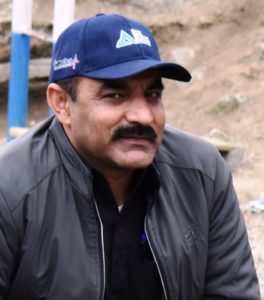
Community participation is the key for sustainable development
PCLDC was very fruitful experience for me. Firstly, I gained confidence and my organization decided to send a staff members in PCLDC every year, which was very much encouraging for me.
Secondly, I applied the participatory approaches which I learned in PCLDC to form VDCs (Village Development Committees) in the field.
Previously, we directly worked with the vendors for building infrastructures in the community, but there was no quality work and misuse of fund. Each VDC has 15-20 members and they select their own secretary and president. After trainings on leadership, saving and record keeping for them, all the community development projects and activities were carried out through the VDCs. Quality work was implemented with community ownership and projects were completed within time and with sustainability. The VDCs also started to have regular meetings to discuss various issues and find possible solutions to them. They developed linkages with other organizations including NGOs and coordinate them to tackle these issues together. Now, if there are any problems in villages, VDCs can address them through their own resources.
Reasons for selection:
– This story includes changes in 3 levels, such as individual (a participant of PCLDC), organizational (the participant’s organization) and community levels (community people with whom the organization is working) .
– This story shows how the individual change affected the community empowerment.
Feedback of the results of the selection process.
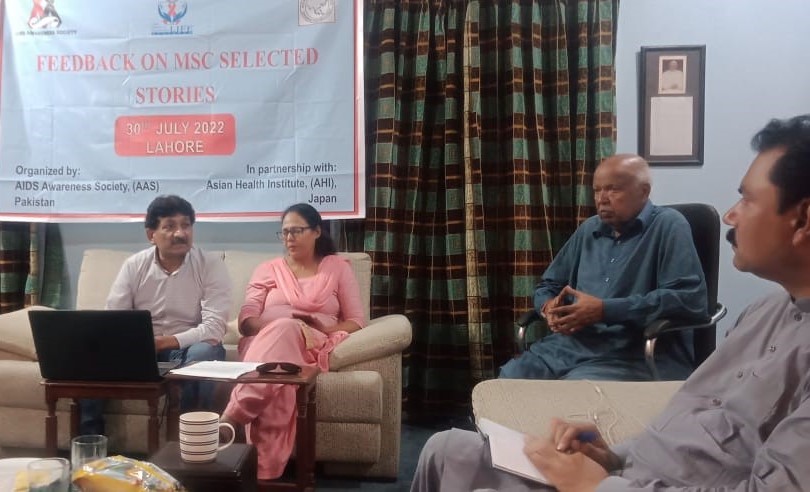
On-site and online meetings with the story tellers, LIFE Alliance members and PCLDC alumni were held in Lahore and in the other 3 regions.
All stories including the one selected as the most significant change were shared with the participants along with the reasons why the one was selected. The participants were amazed at various visualized changes in different angles and perspectives, understood the role of PCLDC for building capacity of community workers, and explored how their leadership has brought social changes.
Verification, Quantification, and Recording
All stories were evaluated by different parties such as:
– Organization managers and colleagues of the story teller
– Local people and beneficiaries related to the story and story teller
– LIFE Alliance members and MSC team from all 4 regions
The following methods were used in each step:
– Sharing stories with the said parties in the step of drafting and finalizing them
– Discussion with the said parties in the step of having feedback sessions
– Pictures, video clips and media reports linked to the story, shared by the story teller in the step of story collection.
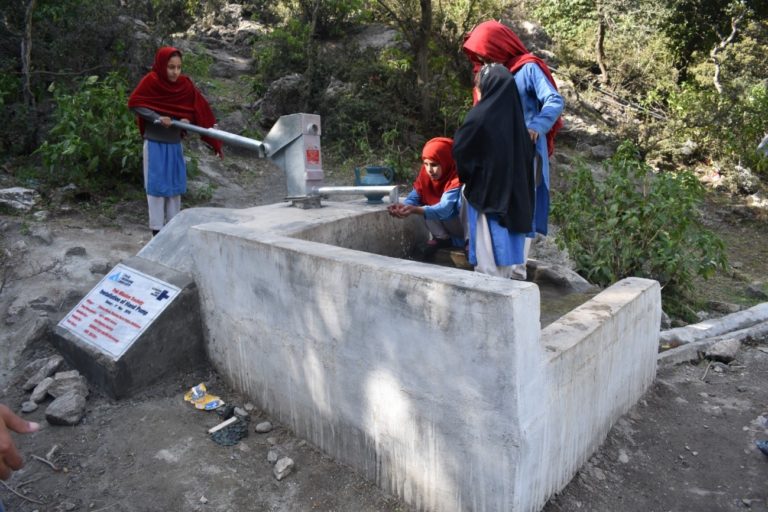
The quantitative data in each story was also analyzed while selection process of the most significant stories by counting the number of beneficiaries in the community linked to changes told in the story and basic principles of participatory approaches and community participation. The beneficiaries were usually selected among neglected and deprived communities, such as child labors, gypsies, transgenders and so on. In case of the story selected as the most significant one, the number of beneficiaries was 4,000. The total number of beneficiaries in 20 stories was 17, 019.
All 20 stories were recorded and kept in both forms of hard and soft copies in AAS office for further secondary analysis and meta-monitoring purpose.
For Building Future Strategy of PCLDC and LIFE Alliance
After feedback sessions, the future strategic plan of PCLDC and LIFE Alliance was discussed among LIFE Alliance members including LIFE Alliance regional coordinators and representative of member organizations.
The participants found,
– Participatory methods and inclusive settings in PCLDC are key elements to facilitate individual change and empowerment by alumni applying their learning in their organizations and communities after PCLDC and make impacts on lives of people.
– Through impact assessment and MSC evaluation activities, PCDLC alumni including the story tellers and the others, who participated in the feedback sessions, were aware of the value of PCLDC and re-motivated as PCLDC alumni. They could be the key actors in regional chapter of LIFE Alliance for strengthening the function of regional offices. Thus, their leadership skills should be enhanced more.
Based on the above findings, the LIFE Alliance members abstracted the following ideas/key characteristics for engaging alumni to be resources for PCLDC and LIFE Alliance, strengthening the regional offices and the sustainability of PCLDC and LIFE Alliance:
1) For more regional focus approaches with the engagement of LIFE Alliance:
Revise the present content of PCLDC and make it more regional contexts to strengthen and expand the scale of LIFE Alliance and engage PCLDC alumni/LIFE Alliance members in each region.
– Engage LIFE Alliance in monitoring and follow-up activity on the Plan of Actions of PCLDC alumni and in organizing refresher course or reunion seminar for the PCLDC/ILDC alumni.
– Organize 3-day regional PCLDC in each of 4 regions based on basic principles of participatory approaches with the engagement of LIFE Alliance regional offices and PCLDC alumni in the process of planning and implementation.
– Organize advanced course on participatory approach for LIFE Alliance members in 2023 to effectively implement regional PCLDC.
– Develop whatsapp group of each region to strengthen the coordination among members of LIFE Alliance to actively participate in PCLDC and LIFE Alliance activities.
– Sharing MSC stories with more PCLDC alumni to encourage them to take active roles in LIFE Alliance
– Organize 1 regional meeting per region and 2 meetings at national level in a year. The latter meetings, one for planning and another is for discussing on key issues, are organized by the executive members of LIFE Alliance.
– Considering the importance of climate change and it’s drastic impacts on the lives of people in PCLDC, action plans were made by the participants because this is very serious issues in every region throughout Pakistan.
2) For enhancing leadership skills of PCLDC alumni:
– Support and facilitate ILDC participants from PCLDC in selection, planning, management process and follow-up activities of ILDC Alumni in Pakistan.
3) For financial sustainability:
– Sharing MSC stories with different financial partners as the evidence of impact on individuals, organizations and communities.
Further discussion will be continued for making more concrete and strategic.
Learning and Findings
Collecting stories:
<Challenges>
– It took time to for interviews due to unstable internet connection.
– Sufficient time allocation and careful facilitation are required to maintain the interest of MSC team and story tellers.
– Heavy flooding disaster and political unrest in the country made difficult to interview with target story tellers.
<Learning>
– It is more appropriate and relevant to conduct interviews face to face and on the site of MSC place because it helps to observe and understand changes in the community or the story teller.
– The interviewer and story writer should be trained enough to properly portray the significance of change in the individuals and communities.
Selection of MSC:
<Challenges>
– To define the meaning and significance of change of the story teller and community
– To validate MSC at community level, because MSC team physically requires time and financial resources, which might offend the story tellers, and some of the MSC stories were from last many years.
<Learning>
– Importance of defining your domain of MSC properly and select your MSC stories based on it.
Feedback:
<Challenges>
– To convince other story tellers and tell them why their stories were not selected as the most significant change one.
<Learning>
– The set domain for MSC should be used as a reference point during feedback. So, it’s important explain briefly and clearly about the process of MSC technique, including the domain, to the story tellers, so they understand why their stories were selected or not selected.
– It can be a source for encouragement and motivation for the story tellers for future intervention/commitment.
– It is very useful because it makes participants realize different aspects of the change and strengthens the MSC story.
Regarding impact on the organization development (Enhancement of Life Alliance):
– MSC exercise has reactivated, recharged, motivated and inspired the members of LIFE Alliance at regional and national level.
– Be able to initiate the future strategic plan of PCLDC and LIFE Alliance
– Be encouraged and recognized by other organizations in other countries such as Sri Lanka and the Philippines.
- Categories
- Alumni now and Learning Community

